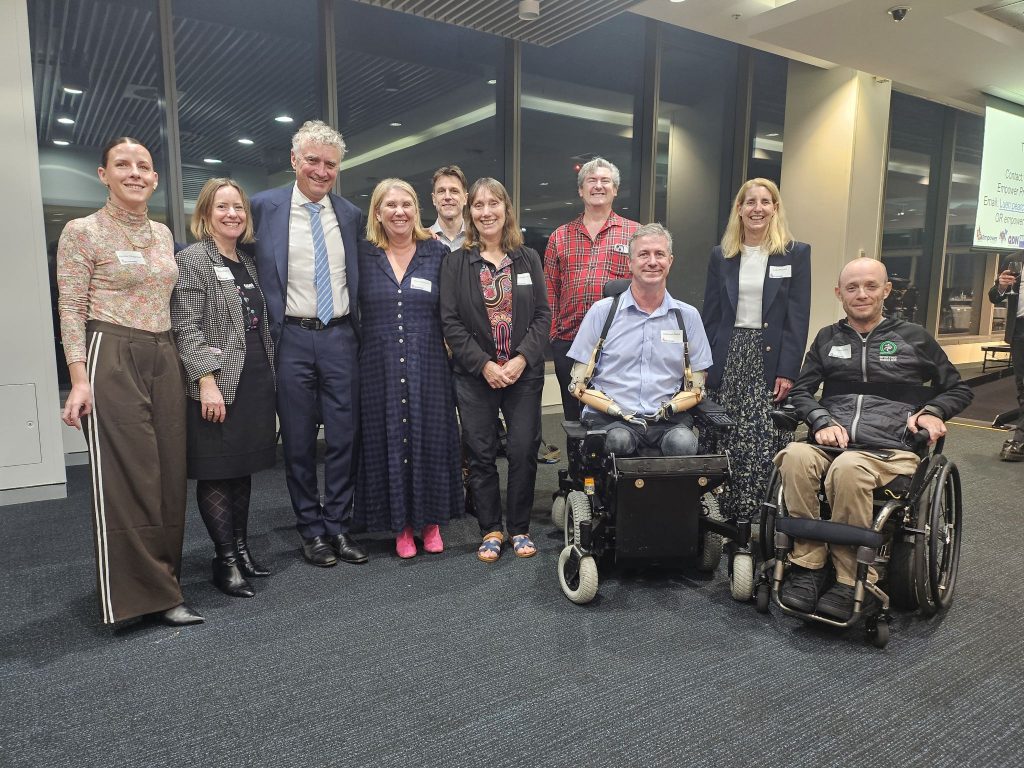
A groundbreaking, co-designed, data-driven initiative aimed at laying the foundations required to dramatically increase participation in sport and physical activity for people with disability in Queensland has officially launched.
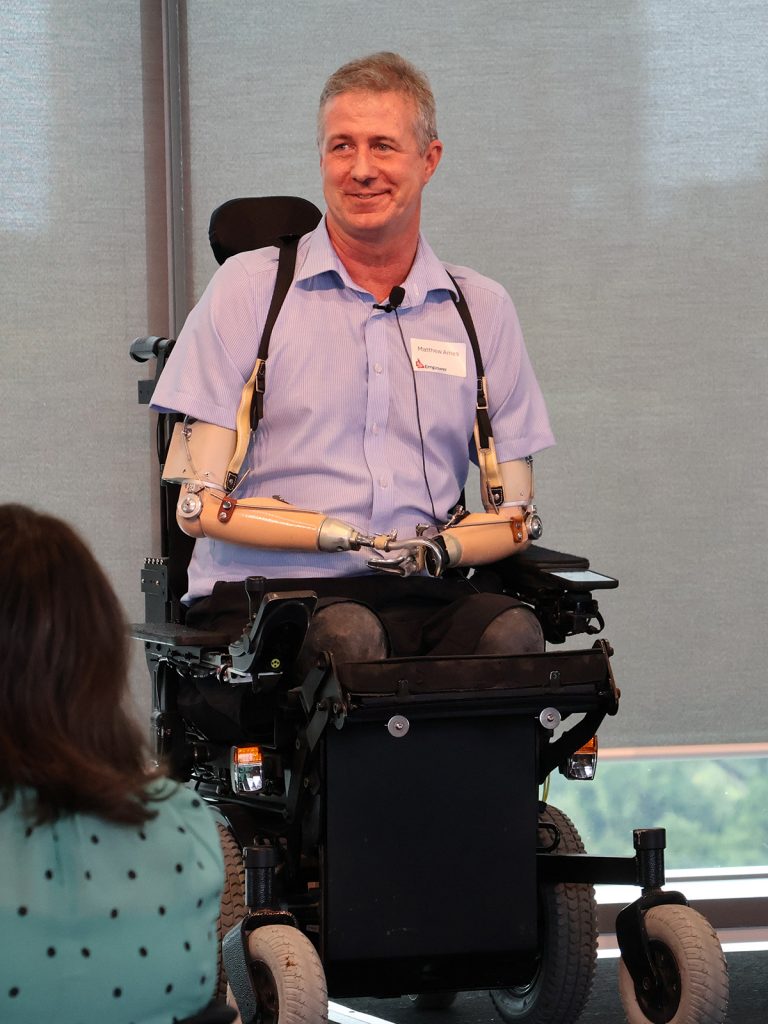
The Empower Project kicked off with a Launch Symposium at QUT, bringing together leaders from across the disability, health, sport, and recreation sectors. This marks the first official Brisbane 2032 Olympic and Paralympic Legacy initiative funded by the Queensland Government.
With the slogan “Count Me In,” the project sets an ambitious goal: to develop a data framework that will lay the foundation to empower 100,000 people with disability into sport and physical activity across Queensland by 2032.
“It’s a powerful goal. When people with disability say, ‘count me in,’ we want to ensure the community is ready to support, guide, and include them,” said Matthew Ames, Empower Project Director.
At the heart of the Empower Project, which is a partnership between Jamieson Trauma Institute (JTI), Metro North Health and Queenslanders with Disability Network (QDN), is the co-design team with lived experience. Jamieson Trauma Institute Director Professor Michael Schuetz says the co-design approach ensures the initiative is shaped by and for people with disability.
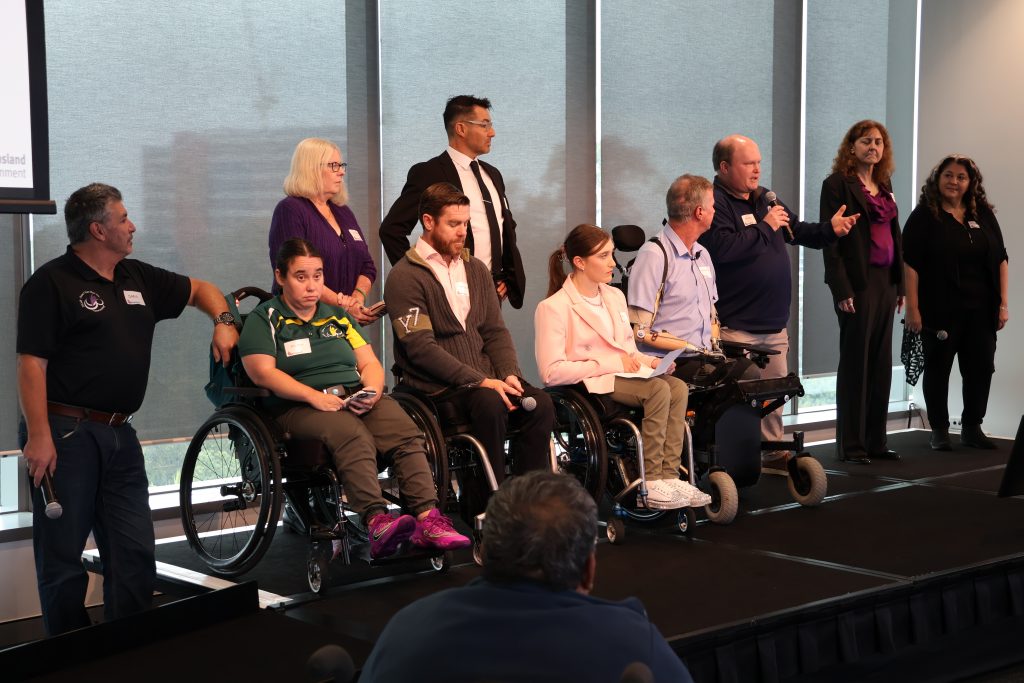
“Our diverse, energetic co‑design group, is made up of Queenslanders with lived experience from across our state. They will help steer the project team of esteemed researchers to deliver that every Queenslander with lived experience can and be able to express what barriers hinder their participation in activities,” said Professor Schuetz. (Feature image – pictured 3rd from left)
The Empower co-design team, together with the Empower research team of experts from the QUT Centre for Data Science – Distinguished Professor Kerrie Mengersen, Dr Mark Connick, and Dr Matthew Moores – and from the University of Queensland – Professor Sean Tweedy, Professor John Cairney, and Dr Martin O’Flaherty, are developing the project scope and methodology to design a data framework tool.
“This project is a stellar example of the power of interdisciplinary research, that when combined with the lived experience of the co-design team, ensure the solutions are not only innovative, but reflect the needs of the communities we aim to serve,” said Professor Mengersen. (Feature image – pictured in centre, 5th from right)
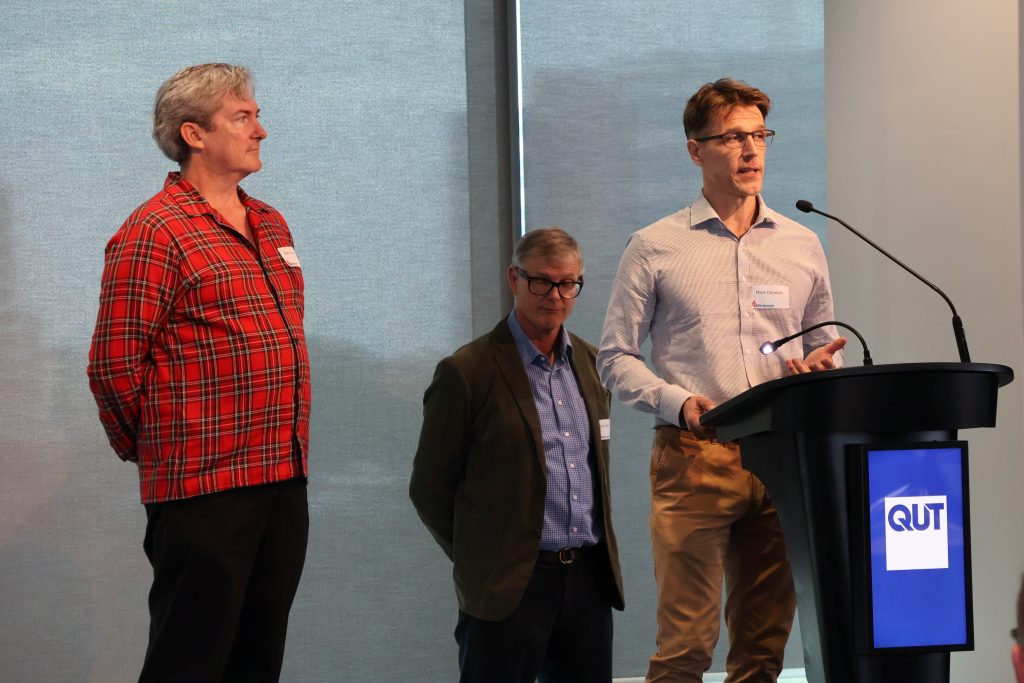
The focus of the research team is on developing an interactive digital mapping tool that identifies:
- Where people with different types of disabilities live
- Existing sport and recreation/physical activity opportunities
- Regional barriers to participation
“The tool will show where opportunities exist, what sports people are engaging in, and the dominant barriers in each region,” explained Dr Mark Connick.
“Its purpose is to highlight areas with the greatest need,” added Dr Matthew Moores.
“The co-design team reflects the multi-dimensional nature of physical activity. Disability varies – physical, intellectual, sensory, speech, psycho-social – and so do support needs,” said Professor Sean Tweedy.
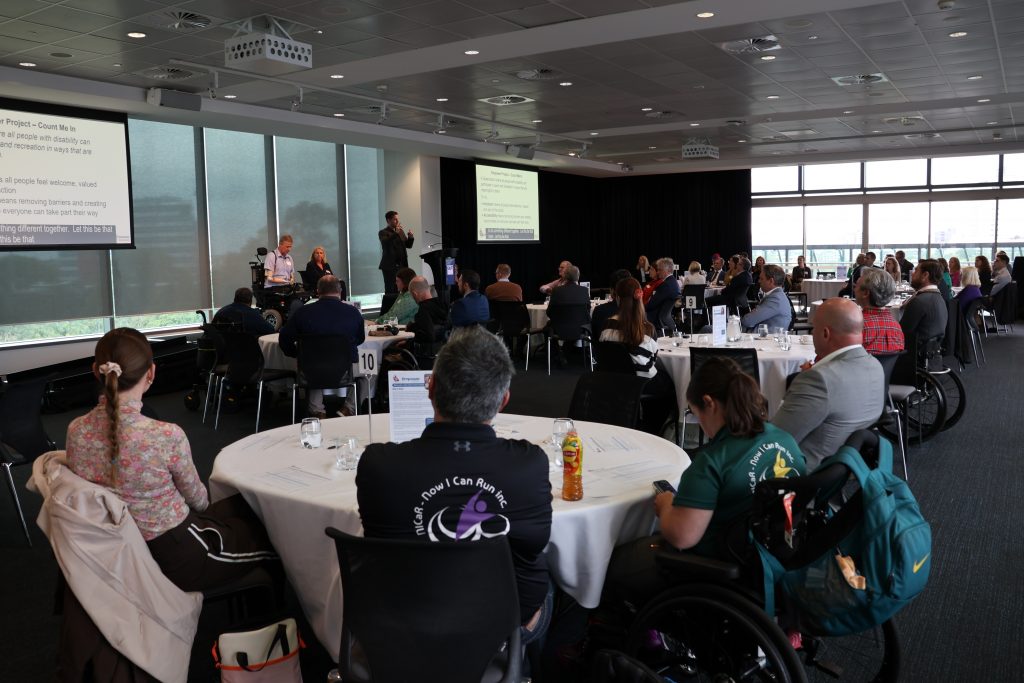
The final goal is to create a publicly accessible digital platform that:
- Helps individuals with disability find inclusive opportunities in their area
- Enables facilities and sporting organisations to understand local disability contexts
- Equips policymakers with insights into participation patterns and barriers
The Queensland Government funded the Empower project with $1-million in 2024.
“We’re not building something for communities – we’re building it with them, alongside people with lived experience of disability,” said Matthew Ames.
The Empower Project promises to leave a lasting legacy – not just for Queensland and the 2032 Games, but for inclusive sport and recreation worldwide.